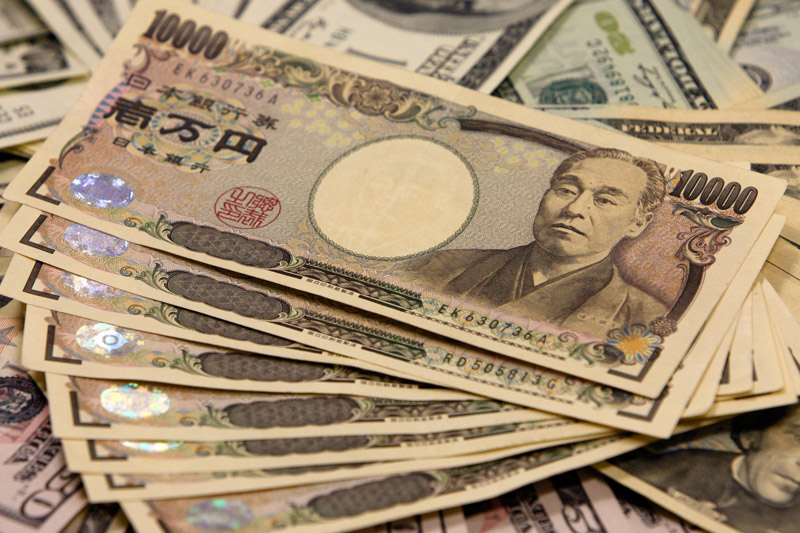Investing.com - The Japanese yen gained strength on Wednesday after comments from a central bank board member hinted at a timeframe for exiting the current massive government bond buying program.
USD/JPY traded at 115.73, down 0.03%, while AUD/USD traded flat at 0.8686.
Bank of Japan board member Ryuzo Miyao on Wednesday said the central bank could start talking about an exit from ultra-loose monetary policy around the second half of fiscal 2015 if, as expected, inflation nears a sustained 2% level.
Miyao told business leaders he doesn't think the latest BoJ decision to expand easing will make it harder for the bank to eventually reduce monetary stimulus.
"As a result of this measure, I think we can comfortably achieve a balanced 2% inflation that comes with improved corporate profits, employment and wages," he said, adding that he expects consumer prices to pick up the pace of increase next summer onward as the base effect of the recent slump in crude oil prices fades.
"If that happens, we will be able to have a prospect for anchoring 2% inflation with corresponding certainty," he said.
In Australia, the November Westpac-MI Consumer Sentiment Index rose 1.9 points to 96.6, from from 94.8 in October, while the official third quarter wage price index rose 0.6%, matching expectations.
"Although wage growth is not expected to decline urther, with many firms foreseeing a period of stable wage growth, pressure on public and private sector employers to contain costs means that wage growth is likely to remain low for a time and pick up only gradually towards the end of the forecast period," the RBA said in its Statement of Monetary Policy last week.
Also on Wednesday, BoJ board member Takehiro Sato will speak on macroprudential policy and the BoJ's initiatives at Japan Society in London from 1330 GMT until 1420 GMT.
The Reserve Bank of New Zealand on Wednesday said the loan-to-value (LVR) restrictions on housing mortgages will remain because of concern of a resurgence in house prices due to strong immigration flows.
Later at the press conference following the release of its annual financial stability report, RBNZ Governor Grahame Wheeler said the LVR limits aren't meant to be permanent but the RBNZ's preference would be to "probably ease rather than remove them outright."
On the exchange rate, Wheeler said he wouldn't "comment on intervention" but said he still believes that the "exchange rate is unjustified and unsustainable."
NZD/USD traded at 0.7814, up 0.10%.
Overnight, the dollar traded largely lower against most major currencies on Tuesday in a quiet session that saw investors sell the U.S. currency for profits.
On Monday, the dollar resumed its rally on sentiments that the jobs report was strong enough to keep the Fed on track to hike interest rates some time in 2015 considering that the economy continues to add over 200,000 jobs a month, though profit taking wiped out gains on Tuesday and sent investors snapping up oversold euro positions.
The yen fell as speculation that Japan’s government may postpone a planned sales tax increase boosted risk appetite and fueled strong gains in Asian equities overnight, curbing safe haven demand for the Japanese currency.
Added talk that Shinzo Abe may call a snap election in December to shore up support and push through his reforms added to the yen's decline.
Elsewhere, data on Tuesday revealed that Japan posted an unexpectedly large current account surplus of ¥963 billion in September, boosted by a weaker yen.
The US dollar index, which tracks the performance of the greenback versus a basket of six other major currencies, rose 0.17% at 87.77.
